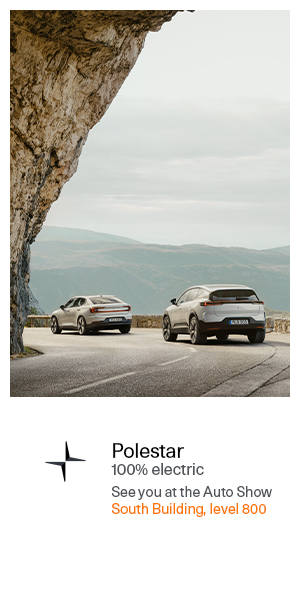The Road Remembered
BY Popi Bowman
A tribute to the Sunday drive, its evolving legacy, and its unwavering ability to connect us through chronicles and klicks.
In the 1970s and ’80s, it was a weekly ritual shared by many families: On a pleasant Sunday afternoon, after brunch, we would pile into my grandfather’s car (usually the latest Volvo station wagon) and go for a drive. Every December, we journeyed later in the day to see the Christmas lights on the best-decorated streets in town. There was no GPS, no destination and no distraction, other than conversation and views. Surrounded by ocean, forest and mountains, in Victoria, B.C., nobody questioned a “scenic drive” – long before “emissions” and “global warming” were common topics.
Most of us who were born more than a few decades ago can remember a childhood that was built on a foundation of family road trips, with no concern for fuel consumption. Some of my earliest memories take place in the back of a Plymouth Valiant station wagon (a gas guzzler, by the way), munching on corn cobs and apples after visiting local farms. My parents’ next vehicle was a baby blue VW Beetle, with black vinyl seats that became sticky in the summer heat during our weekend trips to Rathtrevor Beach. In my pre-teens, I’d ask my dad to “drive like a teenager” after he bought a V-8 Monte Carlo. Obviously he didn’t mind the request, with a chirp of the wheels and a quick spin around a corner.
Leaving Vancouver Island was the highlight of our family road trips; the experience of being in our car, even sitting in the back seat while stuck in line for a ferry, was a feeling of freedom and adventure. Our vehicle transported us to another world filled with highrises and busy people, instead of the slow-moving spectacle of tourists and retirees that bumbled along Victoria sidewalks. As the only big city I visited in my youth, Vancouver beckoned with the promise of unlimited opportunities. After returning to my annoyingly quaint hometown of Victoria, I would ache for our next road trip.
As we grew older, Sunday drives with Grandpa became one-on-one chats to discuss school and life in general, sometimes with a stop at Sam the Record Man. It was never just about driving from point A to point B, or getting anywhere quickly. This was “quality” time. It’s probably part of why I still love Volvos.
In my early teens, my cousins and I flew to Ontario for a road trip with other grandparents, starting in Toronto, where we stayed at the Fairmont Royal York Hotel, to Niagara Falls, continuing to Quebec City, and back. In retrospect, I admire my grandparents’ naive optimism as they piled their truck camper full of adolescents who had zero interest in the historical qualities of the region, which my grandmother faithfully recited at every stop. For most of the trip, we rode in the top of the camper above the driver compartment, watching the roads fly by, defying disaster despite the absence of seatbelts.
My grandparents are long gone; my history-loving grandmother was the last to pass away, just over a decade ago. Their generation welcomed the automobile as an amazing innovation that would forever transform their lives. Those who can remember the transition from horse and buggy are few among us. Our grandparents’ (or parents’) generation used to hop in the car simply for the joy of driving. Instead of a Sunday walk in the park, when cars first became a middle-class staple, a Sunday drive became the new tradition.
Now we seem to take cars for granted. But not always.
If you live in a city, parking access and insurance fees can be prohibitive. Working from home has made car ownership less of a modern requirement, in many cases, and car-sharing services have expanded our options, including luxury vehicle subscriptions offered by several automakers, so you can choose what car to drive more like how you pick a special outfit to wear. But more importantly, in my generation, the arrival of personal computers and the Internet gave us the ability to find any information and order merchandise from the convenience of home – which also affects how much we drive.
On a daily basis, for many urban residents, driving is not a necessity, but a luxury. Living in the country, it’s the exact opposite. The family vehicle is typically associated with going to the hospital, taking animals to the vet and gathering supplies. Survival. When belts are tightened, mention a “Sunday drive” and you might get a glare. Why would anyone waste gas money on that?
Because it isn’t a waste. According to a 2020 survey by Outdoorsy, of 1,400 North American respondents, 93 percent of parents said they felt more bonded with their children when on a road trip, while 75 percent reported their kids said “thank you” more often when on vacation.
But, put a Rand McNally road atlas in front of a typical 20-something, and they might look confused. We don’t take pleasure in mapping out a route anymore, because Google Maps can do it for us in a matter of seconds. Sometimes we forget to explore the sideroads, because Google chooses the most common routes. It’s almost impossible to get lost, unless your navigation system mistakenly leads you into a lake. Meanwhile, the kids in the backseat are too busy looking at screens to notice the scenery. Does anyone play Punch Buggy or I Spy anymore?
Today’s drivers often focus on the burden of our daily commute, and view driving as a “hassle.” What happened to driving just for fun? A road trip is one thing, but even then, it usually involves a certain amount of planning – going from point A to point B, stopping for an activity, and back again. What about taking a few hours to drive the long way from point A back to point A, simply for fun, without a plan or a timeline? This is the essence of the Sunday drive.



